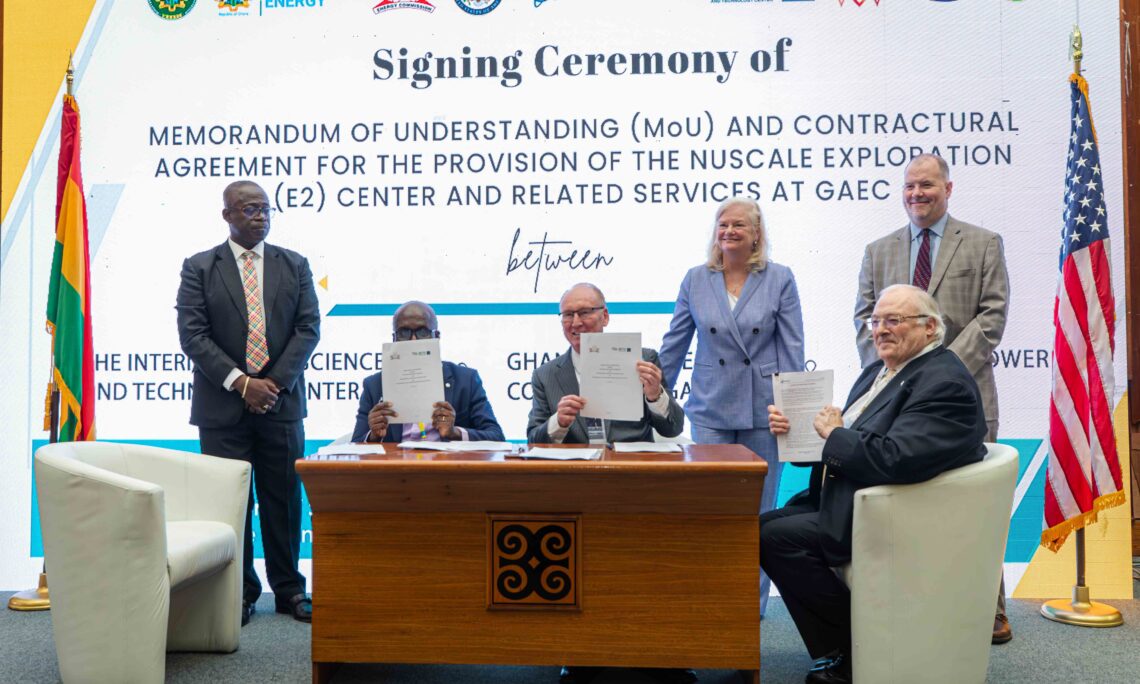ISTC and the Ghana Atomic Energy Commission signed a Memorandum of Understanding (MoU)

On May 28, the ISTC and the Ghana Atomic Energy Commission signed a Memorandum of Understanding for a Regional Welding Certification Program which will provide training for Ghanaian technicians to qualify for nuclear energy construction jobs. Funded by the U.S. Foundational Infrastructure for the Responsible Use of Small Modular Reactor Technology, or FIRST Program, this certification will help establish Ghana as part of a safe and secure small modular reactor hub supply chain in the region. The initiative, announced at the Africa Nuclear Business Platform meeting in Ghana’s capital, Accra, advances safe and secure deployment of a U.S. small modular reactor (SMR) in Ghana.
ISTC also signed a Memorandum of Understanding and contractual arrangements for provision of the NuScale Energy Exploration Center with the Ghana Atomic Energy Commission and the NuScale Power Corporation. Deployment of the Energy Exploration Center is a first on the African continent. The Energy Exploration Center, a simulator of NuScale Power’s SMR control room funded by the FIRST Program, provides a hands-on facility to develop and train next generation nuclear operators and engineers. The NuScale Power Corporation is a publicly traded American company, based in Portland, Oregon, that designs and markets SMRs.
The May 28 announcements build on the commitment from the U.S., Japan and Ghana at the 2022 International Atomic Energy Agency Nuclear Power Ministerial to support Ghana’s intent to be the first operator of SMRs in Africa and build jobs through workforce development and future SMR supply chain needs. U.S. Principal Deputy Assistant Secretary of State for International Security and Non-proliferation Ann Ganzer announced the new civil nuclear cooperation to support Ghana’s safe and secure use of nuclear power, including establishing Ghana as an SMR regional hub. SMRs can provide reliable power around the clock – 24 hours a day, seven days a week – and complement other clean energy sources. They have flexible siting requirements, use a small land area with advanced safety features, including designs to withstand extreme weather and seismic events and can be tailored to match specific requirements of a country’s power grid, with the ability to scale up as needed. SMRs play a critical role in decarbonizing non-electric sectors, such as industry and transportation.
More details about the event can be found here:
https://gh.usembassy.gov/u-s-and-ghana-advance-cooperation-on-clean-secure-safe-and-reliable-nuclear-energy/

